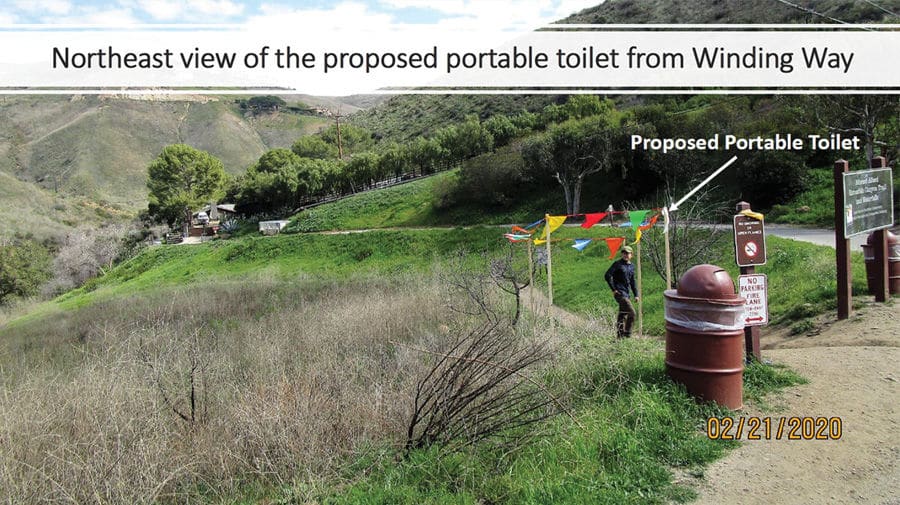Two notably tiny development projects appeared on the Malibu Planning Commission agenda for April 20.
The first miniscule development, taking place in a seven-foot by seven-foot area, was to be a portable public toilet enclosed by a fence at the Escondido Canyon Trailhead at 27555 Winding Way and was proposed by the Mountains Recreation and Conservation Authority (MRCA). However, the item was deferred by the MRCA to an unspecified later meeting date. The proposed location of the toilet had already been moved once due to neighbor complaints.
The second minute development application was for the first-ever lifeguard stand at El Matador State Beach—taking up an area of about 15.5 feet by 15.5 feet. The lifeguard stand has already existed in that same spot for about a year; the agenda item was just to take it from emergency permit status to a regular permit. The beach has become so wildly popular with tourists and visitors over the past five years that California State Parks needed to establish a presence there not only for lifesaving, but to enforce rules about trash, graffiti and bonfires. The Malibu Planning Commission voted unanimously to accept the application.
The application for a coastal development permit by the Paradise Cove restaurant and mobile home residential area to demolish an old wastewater treatment plant and build a new one was discussed for nearly 90 minutes. The new system has already been built without city planning permits—although there was government oversight from the regional water planning board, California Department of Housing and Community Development (a state agency with jurisdiction over mobile home parks), and other Malibu city departments.
The Paradise Cove owners were under pressure from regional water authorities to get the water quality cleaned up. According to their statements, they felt they kept the planning commission informed by copying them on correspondence with regional water, but commissioners disagreed. The city hit Paradise Cove with a construction cease and desist order in December.
Commission Chairman Jeff Jennings described the project as a “fait accompli” and was just grateful the water was finally being cleaned up. He and one other commissioner were ready to vote “Yes” on the permit. However, Commissioner John Mazza sought several pieces of additional information about the project from the staff and, in a 3-2 vote, the staff was asked to come back at the May 18 meeting with that information.

